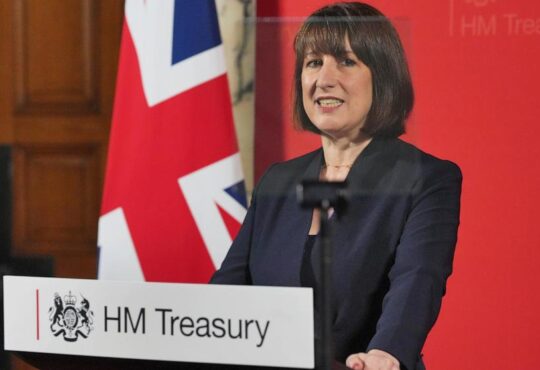
David Cumming, one of the City’s longest-serving fund managers, said the UK must become “more pro-business” to keep its competitive edge over rival financial centres that are winning the IPO battle.
“London has to be a little bit careful,” said Cumming, who is head of UK equities at BNY Mellon-owned Newton Investment Management. “There is a tipping point where big companies start to list somewhere else and you start to lose some of the competitive advantages that made London a competitive financial centre.”
The comments from the veteran stock-picker, who began his investment career 40 years ago, come as the UK continues to grapple with an IPO drought which has seen a string of companies opting to pursue stock market listings in the US.
Cambridge‑based chipmaker Arm and building materials business CRH are among the biggest UK names to have shunned London to float in New York.
Over the first nine months of 2023, there were 23 company listings in the UK, raising £953m, compared with 34 IPOs raising £1.2bn over the same period in 2022, according to EY.
READ City divided over hiking exec pay to tackle IPO crisis
Better pay for executives and higher valuations are often cited as reasons for UK companies to consider listing in the US.
UK equities have been unloved for some time. UK pension funds have slashed their allocation to domestic equities over the past 25 years from 53% to just 6%. Meanwhile the percentage of UK households that invest directly in company shares has halved in the past two decades, according to research by New Financial.
“From a UK equity point of view, the UK market at the moment is cheap, unloved and under-owned,” said Cumming.
“To some extent that’s the consequence of no retail participation, we’re losing listings, and ownership among institutions has dropped.”
A cohort of financial services titans, including Liontrust chief executive John Ions, Octopus Investments CEO Benjamin Davis, and Premier Miton boss Mike O’Shea called on Chancellor Jeremy Hunt to reform the UK’s current ISA framework in his 22 November Autumn Statement to tackle a “downward spiral of investment and lower valuations”.
In a letter published in The Times on 15 November, the group urged Jeremy Hunt to introduce a British ISA to allow investors to put their £20,000 annual allowance to work in “growing the economy and supporting British companies”.
“We need to make the UK more attractive,” said Cumming. “I don’t think the UK is doomed, but we have to be seen as more pro-business.”
He added: “The good news is [the government] is looking at it and we are coming off a low ebb. Let’s hope this is the darkest before the dawn.”
Cumming is not the only high profile investor that has called for changes to put the UK on a level playing field with other major financial centres.
Before his retirement from Jupiter at the end of August, Richard Buxton called for reforms to the UK pension system, such as merging existing defined benefit and defined contribution schemes to “create larger funds that can take more risk”.
The Chancellor announced in his July Mansion House speech proposals to enable defined benefit schemes to merge. The aim is to enable them to build scale and make riskier investment calls.
The Chancellor also revealed that some of the UK’s largest defined contribution pension schemes had agreed to allocate 5% of the assets in their default funds to unlisted equities by 2030. Currently, they allocate less than 1%.
To contact the author of this story with feedback or news, email David Ricketts






